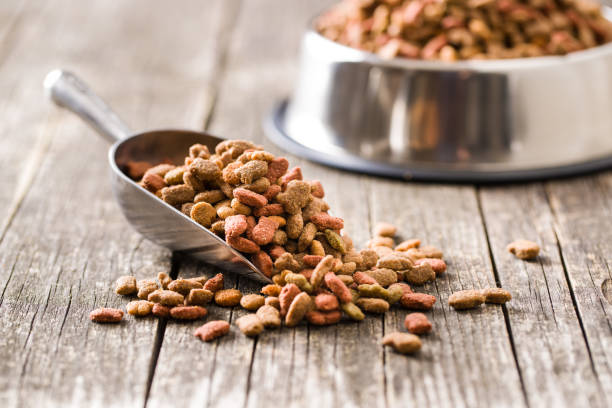
Helping your dog gain weight requires a combination of appropriate diet, exercise, and veterinary guidance. Here are some important factors to consider and implement to support healthy weight gain for your dog.
-
Consult a Veterinarian: Before making any changes to your dog's diet or exercise routine, it's crucial to consult a veterinarian. They can evaluate your dog's overall health, identify any underlying medical conditions that may be causing weight loss, and provide tailored advice for weight gain.
-
Determine the Ideal Weight: Work with your veterinarian to determine the ideal weight for your dog. This will help you set a goal and track progress effectively.
-
Nutritious Diet: Ensure that your dog is consuming a balanced and calorie-dense diet. Choose a high-quality dog food that is specifically formulated for weight gain or growth. Look for products that contain higher levels of protein and fat to promote healthy weight gain. Your veterinarian can recommend suitable commercial dog food or provide a recipe for a homemade diet.
-
Frequent Feeding: Increase the number of meals your dog receives each day. Instead of feeding your dog twice a day, consider dividing their daily food portion into smaller, more frequent meals. This helps increase calorie intake without overwhelming the digestive system.
-
Calorie Boosters: Supplement your dog's meals with healthy calorie boosters. Adding items like cooked chicken, boiled eggs, canned pumpkin, sweet potatoes, or cottage cheese to their regular food can provide additional calories and nutrition. However, always consult your veterinarian before making any dietary changes.
-
Avoid Fillers: Avoid feeding your dog foods with excessive fillers, such as wheat, corn, or soy. These ingredients provide minimal nutritional value and can contribute to weight gain in an unhealthy way.
-
Monitor Treats: Treats can be a significant source of extra calories. Limit or avoid high-calorie treats and opt for healthier alternatives like small pieces of cooked meat or vegetables.
-
Exercise: Regular exercise is essential for overall health, but consider adjusting the intensity and duration to prevent excessive calorie expenditure. Focus on low-impact activities like short walks, gentle playtime, or swimming. Consult your veterinarian for specific exercise recommendations based on your dog's age, breed, and health condition.
-
Regular Weigh-ins: Monitor your dog's weight regularly to track their progress. Weigh your dog weekly or as advised by your veterinarian. Keep a record of the weight to assess the effectiveness of your weight gain efforts.
-
Patience and Persistence: Weight gain is a gradual process, and it's important to remain patient and persistent. It may take several weeks or even months for your dog to reach their ideal weight. Stick to the recommended plan, monitor progress, and make adjustments as needed.
Remember, every dog is unique, and what works for one may not work for another. Working closely with your veterinarian and following their guidance will ensure that you're providing the best care for your dog's individual needs.
